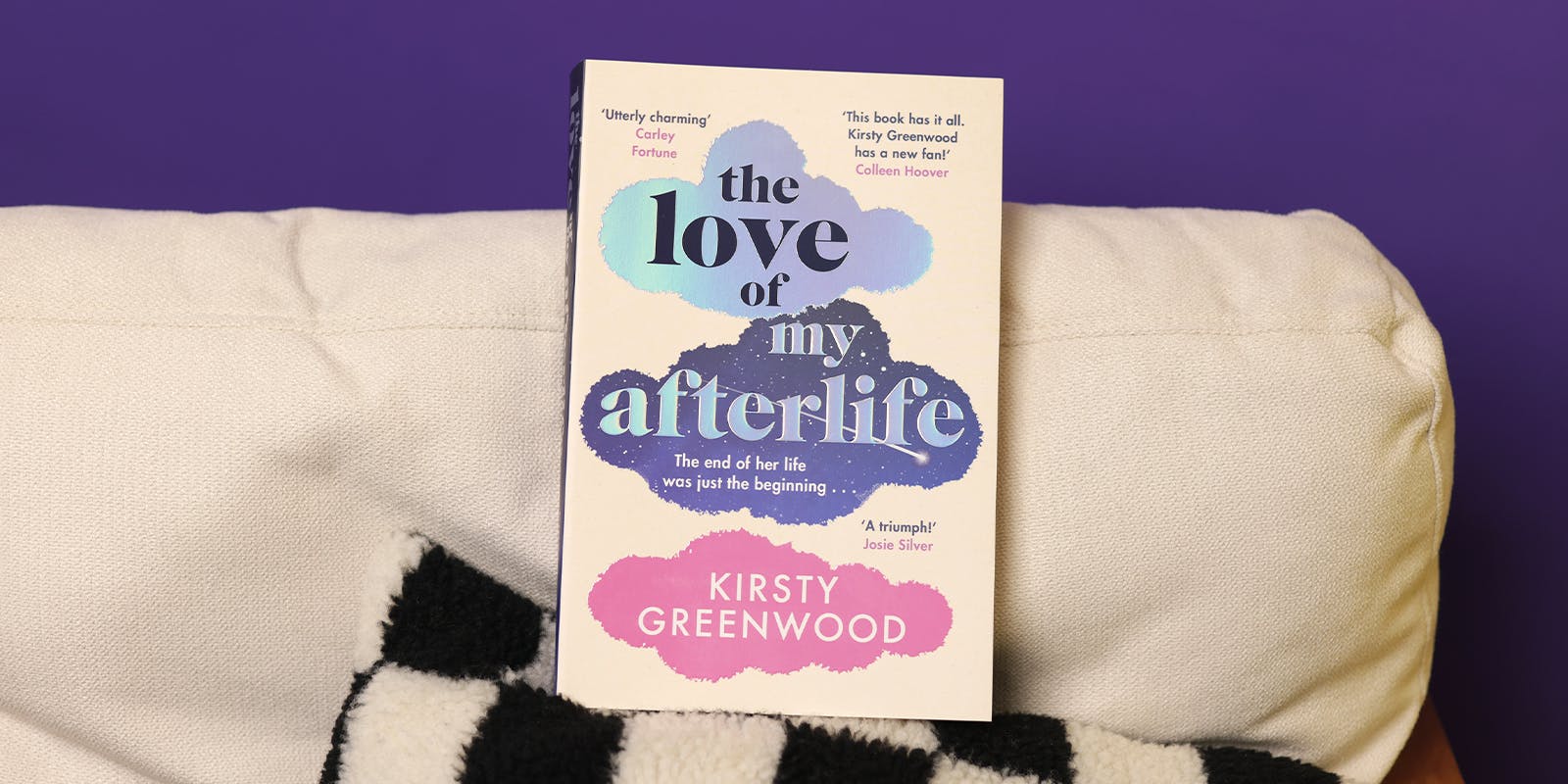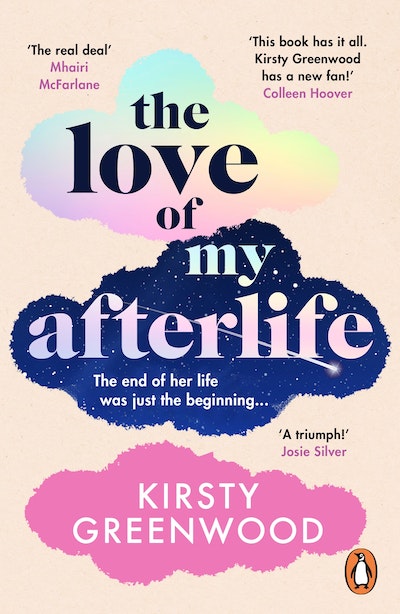Author Kirsty Greenwood shares why she wanted to write about the challenges of making friends as an adult, which parts of writing were most challenging, and what she hopes readers take away from the book.
How would you describe The Love of My Afterlife?
The Love of My Afterlife is a story about a stuck, lonely woman getting a second chance to discover the joyful life (and people!) she’s spent years hiding from.
It's also a sexy, honest and unabashed romantic comedy that will hopefully leave the reader feeling brave, invigorated and uplifted!
The Love of My Afterlife centres on Delphie, a young woman who has mostly cut herself off from the world and over the course of the book finds herself making all sorts of surprise connections. How did your experience moving from a small town to London inform Delphie’s journey?
It massively influenced Delphie’s journey.
My first six months in London were tricky. I was living in a really transient neighbourhood, had no regular social life and became unwell, to the point that I knew I had to make some serious changes. I began therapy and then moved to Paddington and found myself slowly getting better.
I started to open myself up to conversations with strangers, which led to invitations, which led to many awkward moments but also increased confidence and the knowledge that a little awkwardness is sometimes the price you have to pay at the start of most new connections.
I decided to be brave and join a musical theatre writers workshop full of strangers, and I have made so many friends and found such a lot of soul happiness from it. The people I met and the places I hung out have all inspired this book.
Through Delphie’s story, what did you want to share about the unique challenges of making new friends as an adult?
As kids we make friends pretty easily, not worrying about whether we’re being cool or interesting and worth knowing.
As adults, we’re expected to have most of our friend circle in place, so it can sometimes feel like a failure when that’s not the case.
It wasn’t the case for me, and I went through a period of feeling like ‘What’s wrong with me!’
I am a very chatty neurodiverse introvert who gets itchy at the thought of small talk (let’s get straight to the big talk, please!).
I wanted to write a character who felt that way too but was absolutely forced to navigate it and find her people to literally save her own life. I feel like that’s what spurred me on. My life was in total stasis and I knew something big had to change.
I also generally find it very amusing, the game of meeting new people and figuring out if there’s a spark, and the absolute joy when you realise there is.
I wanted to show Delphie connecting with these weird and wonderful characters who were also looking to find their own community in such a vast city – the initial uncomfortableness of it, and eventually the pleasure and comfort.
While The Love of My Afterlife incorporates some fantastical elements, it’s also grounded in the reality of living and dating in a big city. How did you balance fantasy with reality?
I love that even though Delphie has these otherworldly interactions, the most magical moments of her experience happen on Earth, with the everyday people she meets. I love a magical book because it gives the feeling that anything is possible – which is a great catalyst for a protagonist.
It wasn’t easy balancing the fantastical elements with the reality. I think perhaps placing a very normal woman, with vices and insecurities, stuffed-down dreams and hidden hopes in that scenario helped. I also wanted Delphie to react to these occurrences in the same way that I would. The knowledge that they’re batshit crazy, but are absolutely happening so you better deal with it.
Delphie spends much of the novel trekking about London as if she’s a tourist (visiting a musical theatre bar, a drawing class, a silent disco, and a lavish costume gala). Although most of these events make her uncomfortable, Delphie is undoubtedly drawn to the arts throughout the book – how has your relationship to the arts influenced Delphie’s story?
I hadn’t realised how many of these activities were artistic until this question!
I guess these are the things that I’m obsessed with and find fun to write about which, hopefully, shines through in the novel!
I also think that artistic endeavours allow people to get out of their heads and into their bodies and hearts – Delphie needed to connect with those simple pleasures of music and art to realise that she still could feel wondrous about life. Sometimes when you’re in the pits, all you need is that little shimmer of delight to know that life is worth fighting for and that your heart is still capable of hope. Those delight shimmers, for me, come very much in the form of music and theatre and colours.
Delphie must step far outside her comfort zone on her quest to find Mr. Right. Why do you think readers find ‘fish out of water’ characters so compelling?
Probably because we’ve all been a fish out of water at some point!
I spend much of my life feeling like a fish out of water, to be honest.
Reading a book, or watching a movie in which the fish starts to thrive outside of their usual environment is deeply pleasurable. We all have outlandish dreams or secret fantasies we think about in the moments before sleep. I reckon seeing someone safely and successfully navigating those outlandish dreams in fiction provides a road map for how one might go about it in real life.
Without giving away too much, how did it feel to write the epic happily ever after moment?
By that point in the writing journey, I felt relief. Delphie had gotten through and so had I! I had a big old cry. The whole process of writing this book has been deeply cathartic.
What did you find most challenging about writing this novel? What was most rewarding?
I find first drafting challenging: all of those possibilities of what will happen and no definite knowledge of what will work. I’m a very light plotter too, which adds to the anxiety about what I’ll end up with.
Along the same lines, though, not knowing what will happen is also the most rewarding part of the process. When you happen upon something unexpected that works just right? There’s no better feeling.
What do you hope readers will take away from The Love of My Afterlife?
Even in this super online, difficult and disconnected world, people are still looking for people – to love, to make friends with, to do fun real-life things with and to be understood by.
No matter how old you are, there are people out there right now who will enhance your life in the most magical ways.
If anyone reading this needs a little courage to go out a find the joy that’s waiting for them then I hope this book does the trick.
I also really hope that The Love of My Afterlife makes readers laugh and swoon and feel seen and just generally have an absolute ball with Delphie and Merritt and the crew. I put all my good stuff in this book for you!













